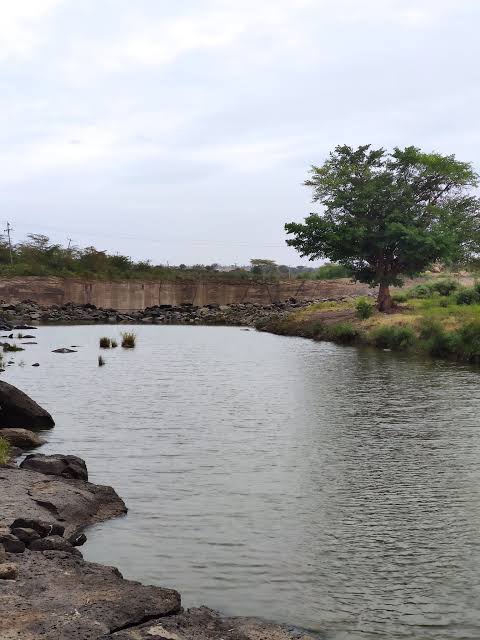 A section of the Athi River/HANDOUT
A section of the Athi River/HANDOUTSome Mavoko residents have launched a bold campaign to reclaim the heavily polluted Athi River.
They have called on the Machakos county government to take decisive action against industries accused of discharging untreated waste into the vital waterway.
The residents gathered at a riverbank in Mavoko to plant bamboo trees along the Athi River stretch that runs through Machakos County.
The exercise is one of several initiatives aimed at restoring the river’s health while sending a message to polluters.
“We are cleaning this river for those living downstream,” said John Kakui, Chair of the KISAKA Foundation.
“We chose bamboo trees because they are known for their ability to absorb toxins and prevent further degradation of riverbanks,” he added.
The initiative comes amid rising concerns about the deteriorating state of the Athi River, whose waters serve thousands of people both locally and downstream.
The residents say the industries continue to release untreated waste into the river without consequences, posing a serious threat to both environmental and human health.
Researcher Jimmy Maison from the Kenya Forest Service supported the choice of planting bamboo trees along the riverbanks.
“Bamboo is ideal for riverbank restoration. It’s fast-growing and effective in filtering pollutants while helping stabilise riverbanks,” Maison said.
While some companies have made commendable efforts in waste treatment, Kakui pointed out that action is needed against the habitual offenders.
“We want action. The health of our communities and future generations depends on it,” he emphasized.
The KISAKA Foundation, in collaboration with GREEN AFRICA, also plans to extend its river conservation efforts to other parts of lower eastern Kenya.
They believe that by cleaning up key water sources like the
Athi River, the region and the nation could break dependence on food relief
and unlock agricultural potential.










